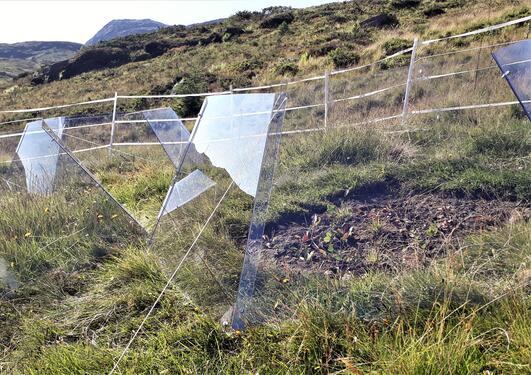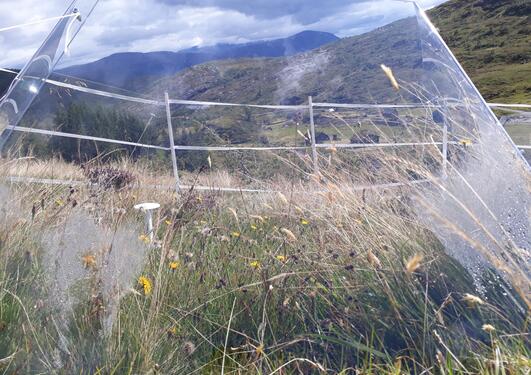Range expansion and pollinators
Vigdis Vandvik, Nadine Arzt

Main content
Impacts of range-expanding plants on pollinator interactions
As both native and exotic species shift their distributions in response to climate warming and through biological invasions, many expand their ranges across elevational gradients. This expansion results in the reassembly of ecological communities, which mediates the effects of climate warming on biodiversity and key ecosystem functions. RangeX is a multidisciplinary, replicated field and laboratory experiment being conducted in climatically and socio-ecologically contrasting regions (Switzerland, Norway, China, South Africa) that seeks to better understand these range shifts in mountain habitats. Mountains are of crucial conservation value as hotspots of biodiversity, refugia for biota threatened by climate warming, and as key global sources of water, food, and livelihoods, but are experiencing above-average rates of warming and increasing pressures from invasive species and development, making mountains priority areas for sustainability research.
Experimental design: RangeX field experiments comprise warming treatments, introduction and removal of key plant species, and intensive monitoring of soils, plants, and pollinators across multiple elevations. By investigating biotic interactions both above and below ground, we aim to: (i) disentangle the drivers of range expansions; (ii) uncover the consequences of range-expanders on biodiversity and ecosystem functioning; and (iii) predict the extent and impacts of future range expansions. Location: montane and lowland grasslands near Voss, Norway.
Question: Do range-expanding plant species disrupt plant-pollinator interactions?
Methods: Quantify insect visitation rates of the planted focal range-expanding species and selected native plants in the background community using a novel image-based methodology. Images will be collected every minute each day during the growing season using time lapse cameras mounted over flowering plants from bud burst to seed set. At each site, 24 cameras will record focal range-expanding species, and native plants with matched floral traits next to and away from the range-expanding species. Deep-learning convolutional neural networks (CNNs) will be used to automatically extract the timing, location, and identity of flower visitors from the images. This will allow us to quantify the importance of visitation rates, and visitor identity and diversity, for seed set of both native and range-expanding plant species. Sweep netting, pan trapping, and direct observation will be used to confirm the identity of observed flower visitors and their status as pollinators. The machine-learning models will be trained on a manually labelled subset of images at each site. The field methodology has already been tested at sites in Greenland and Denmark, the analysis pipelines have been developed, and the most appropriate CNN models have been identified.
As an MSc student working within the RangeX project, you will:
- Do field work; learn how to design and conduct ecological experiments; identify and measure plants and/or insect pollinators; manage and analyse ecological data; write up your data as a thesis; and present your work in oral presentations within the team and at conferences.
- Be part of the ‘Between The Fjords’ lab group activities
- Be part of a large collaborative international research project, where you will participate in project meetings and workshops online and in person.
- Get to know and work with a cross-disciplinary group of researchers at different career stages, and see how your work relates to work on different functional groups and trophic levels.
- Be given opportunities to present your work at scientific conferences and you will be supported in publishing your thesis as a scientific article.
We have listed multiple project options on this website, but if you have other suggestions, don’t be afraid to contact us and ask!

